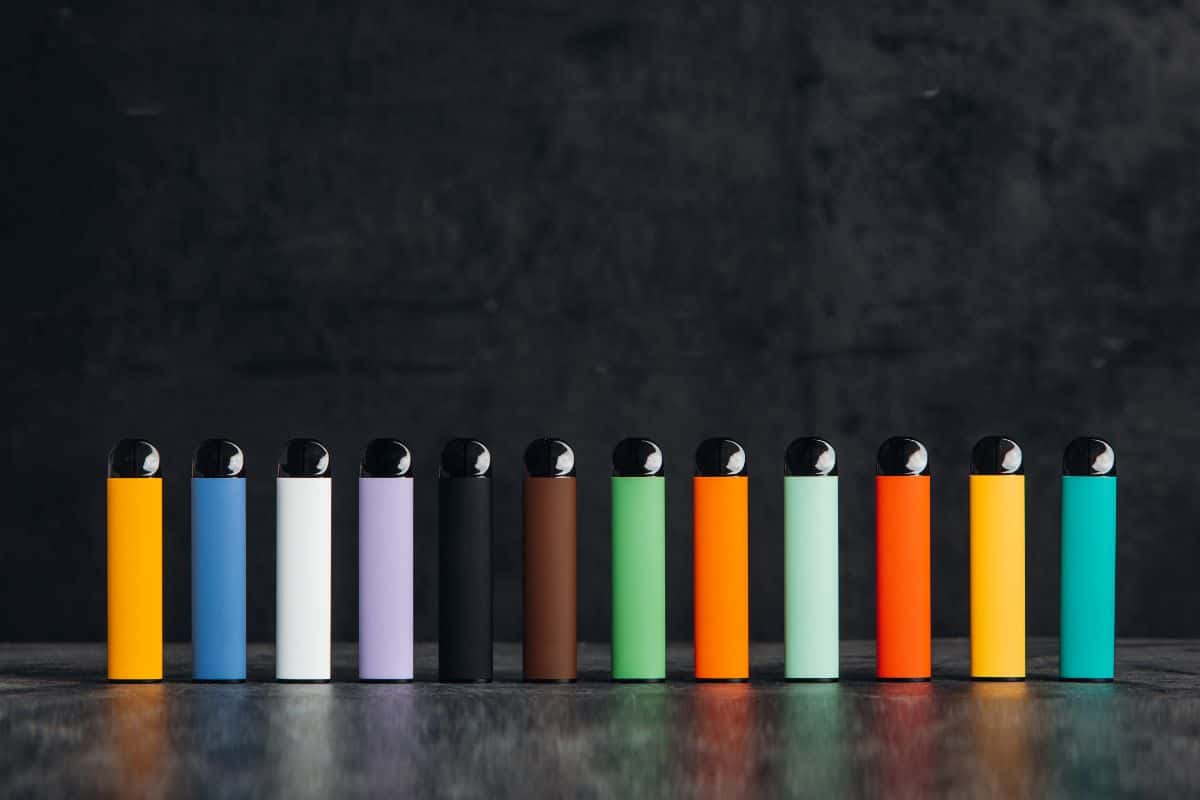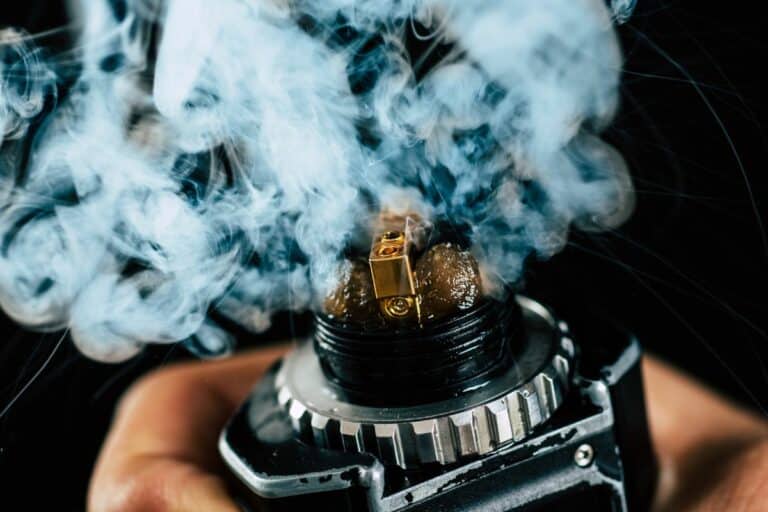How Long Does Vape Smoke Stay in the Air?
Vaping has become a popular alternative to smoking cigarettes, with many people enjoying the range of flavors and customizable options that are available.
However, there is still some concern about the potential health effects of vaping, both for those who are vaping and for those who are exposed to the vapor second-hand.
One question that comes up frequently is how long vape smoke stays in the air. In this article, we will explore this topic and provide answers to some common questions about vaping.
Table of Contents
What is Vape Smoke?
Vape smoke, also known as vapor or aerosol, is the cloud that is produced when a person uses an electronic cigarette or other vaping device.
This cloud is made up of tiny droplets that are created when the liquid in the device is heated and turned into vapor.
Vape smoke typically contains nicotine, flavorings, and other chemicals that are added to the liquid. While vape smoke is not the same as cigarette smoke, it can still have an impact on air quality and the health of those who are exposed to it.
How Does Vape Smoke Affect the Air Quality?
Vape smoke can have an impact on the air quality in a room, especially if the room is poorly ventilated.
This is because the vapor particles can remain suspended in the air for some time, which means that they can be breathed in by anyone who is in the room.
In addition, some of the chemicals in vape smoke can interact with other chemicals in the air to create new compounds, which can also affect air quality.

Factors Affecting the Persistence of Vape Smoke in the Air
Several factors can affect how long vape smoke stays in the air, including:
Humidity
Humidity can play a significant role in how long vape smoke remains in the air. Higher humidity levels can cause the droplets in the smoke to grow larger and fall to the ground more quickly, which means that the smoke will not remain in the air as long.
NEW CUSTOMER DISCOUNT
Save 15%
15% OFF YOUR ENTIRE ORDER FOR NEW CUSTOMERS USE CODE WELCOME15!

Temperature
Temperature can also have an impact on how long vape smoke remains in the air. Warmer temperatures can cause the smoke to disperse more quickly, while cooler temperatures can cause it to linger for longer.
Airflow
The direction and speed of airflow in a room can also affect how long vape smoke remains in the air. If there is a lot of movement in the air, such as from a fan or open window, the smoke is more likely to disperse quickly.
Ventilation
The ventilation in a room can also affect how long vape smoke remains in the air. A room with good ventilation, such as an open window or air conditioning system, will typically have less persistent smoke than a room with poor ventilation.
Type of Vape Device
The type of vape device being used can also affect how long vape smoke remains in the air. Some devices produce larger clouds of smoke than others, and the size of the cloud can impact how long it remains in the air.
How Long Does Vape Smoke Stay in the Air?
The amount of time that vape smoke remains in the air can vary depending on the factors listed above.
In general, vape smoke can remain in the air for anywhere from a few seconds to several minutes. The size of the room, the ventilation, and the size of the cloud all play a role in how long the smoke will last.
However, it is important to note that even after the smoke has dissipated, the chemicals in the air may still pose a risk to those who are exposed to them.
This is why it is recommended to avoid vaping in enclosed spaces or around others who may be sensitive to the chemicals in the vapor.
Health Risks of Vape Smoke
While the long-term health effects of vaping are not yet fully understood, there is evidence to suggest that vaping can have negative impacts on both the individual who is vaping and those who are exposed to the vapor second-hand. Some of the potential health risks associated with vaping include:
- Irritation of the eyes, nose, and throat
- Respiratory problems, such as coughing and wheezing
- Increased risk of asthma attacks
- Decreased lung function
- Increased risk of heart disease
Conclusion
In conclusion, the amount of time that vape smoke remains in the air can vary depending on several factors, including humidity, temperature, airflow, ventilation, and the type of vape device being used.
While vape smoke may dissipate relatively quickly, the chemicals in the air may still pose a risk to those who are exposed to them.
To minimize the potential health risks associated with vaping, it is recommended to avoid vaping in enclosed spaces or around others who may be sensitive to the chemicals in the vapor.
Browse popular vape collections:
- Nicotine Disposables
- 2000 Puff Nicotine Disposable Vapes
- 2500 Puff Nicotine Disposable Vapes
- 5000 Puff Nicotine Disposable Vapes
- 6000 Puff Disposable Nicotine Vapes
- 7000 Puff Nicotine Disposable Vapes
- Disposable Vape Deals
- Best Vape Brands
- 8000 Puff Nicotine Disposable Vapes
- 9000 Puff Nicotine Disposable Vapes
- 5% Nicotine Disposable Vapes
- Rechargeable Nicotine Disposable Vapes
- Vape Coils
- Dab Wax Pens
- Dab Wax Pen Battery
- Yocan Vapes
- Vape Cases
FAQs about vape smoke
Is vaping harmful?
While vaping is often considered to be less harmful than smoking cigarettes, it is still not without risks. Vaping can have negative impacts on the respiratory and cardiovascular systems, and the long-term health effects of vaping are not yet fully understood.
Can vaping cause lung damage?
There is evidence to suggest that vaping can cause lung damage, particularly when high levels of certain chemicals are present in the vapor. Some studies have linked vaping to an increased risk of respiratory problems, including chronic bronchitis and COPD.
What are the ingredients in vape juice?
The ingredients in vape juice can vary, but they typically include a base liquid (such as propylene glycol or vegetable glycerin), flavorings, and nicotine (in the case of nicotine-containing liquids).
How does vaping affect the environment?
Vaping can have an impact on the environment, particularly if the devices and their components are not disposed of properly. Some vape devices contain batteries and other components that can be harmful to the environment if not recycled or disposed of correctly.
Can vape smoke trigger smoke alarms?
Some smoke alarms are designed to detect particles in the air, including those produced by vape smoke.
However, not all smoke alarms are capable of detecting vape smoke, and the sensitivity of the alarm may depend on the size and density of the cloud produced by the device. It is always best to avoid vaping in areas where smoke alarms are present.
Resources:







